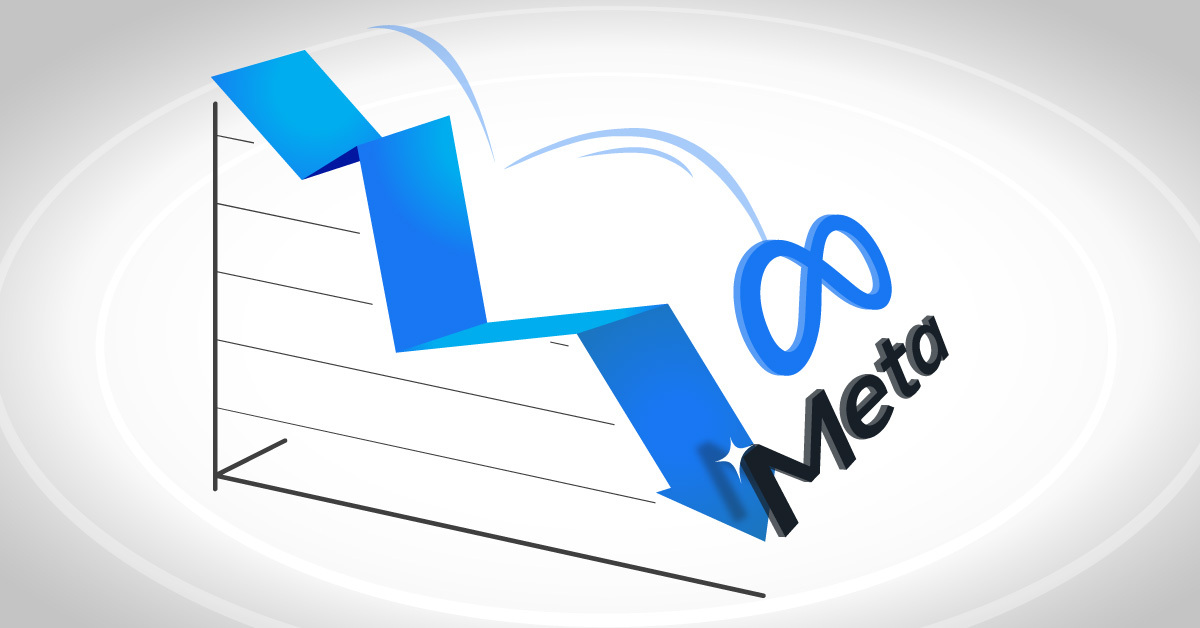Meta, formerly Facebook, has just posted a year over year decline in quarterly revenue for the first time since the company went public in 2007, plus an unexpected 36% drop in profits.
Its second quarter financial results show a 1% decline over its results for the same time in 2021, down from US $29.07 billion to $28.82 billion.
This result comes hot on the heels of Facebook’s loss of daily active users in the last quarter of 2021 — another first for the social media giant. While those numbers are going back up, it does raise eyebrows.
Outgoing COO Sheryl Sandberg blamed the profit decline on the decreasing value of the Euro and the “weaker demand for digital advertising and the broader economic uncertainty.” Google, Twitter and Snapchat have all reported less demand for advertising because of the slowing global economy, the effects of the war in Ukraine, and the strength of the US dollar.
Fair enough, but we wonder whether Meta’s lackluster showing proves the wind has changed direction on businesses that profit from personal data?
We’ve been saying for a long time that consumers are sick of trading their privacy for access to online services, and certainly Big Tech is facing a tougher regulatory environment. The New York Times suggests that Meta’s recent results are due to “increased regulatory scrutiny and a turbulent economy while trying to build a new frontier of digital communication.”
There’s a raft of new rules and laws to rein in — even break up — Big Tech and give consumers more control over their data. In the United States, two major bills could significantly alter how Big Tech does business and both have bipartisan support. The bill we reported on in June — the American Data Privacy and Protection Act— has progressed further than any other attempt at a US federal data privacy bill and is looking increasingly likely to pass. The second major bill — the American Innovation and Choice Online Act or “Anti-Trust Bill” — could prevent Big Tech from favoring its own businesses and give smaller companies greater market participation. This bill is reportedly making Big Tech nervous.
The United Kingdom is also tackling anti-trust and greater consumer control with new rules that would see large tech companies like Facebook and Google copping huge fines of up to 10% of their global turnover if they engage in “predatory practices”. The new Digital Markets Unit (DMU) will have new compliance powers.
On top of this, consumer sentiment has been changing for Big Tech for some time. Facebook advertising revenue suffered from Apple’s recent privacy changes designed to give users “deeper insights and more granular control than ever before.”
In late 2020, respondents in the annual Business Insider US Digital Trust Survey ranked Facebook last for digital trust in protecting users’ personal information and providing a safe online environment. The survey evaluates how US social media users feel about the big social media platforms — Facebook, Instagram, LinkedIn, Pinterest, Reddit, Snapchat, TikTok, Twitter, and YouTube — and assesses the extent to which trust affects usage and attitudes towards advertising. After Facebook, Tik Tok and Twitter ranked second and third lowest for trust. LinkedIn ranked highest.
Business Insider said about the results: “Digital trust is important for brands and advertisers to consider because US social users say it impacts whether they will interact with the ads they see on social platforms. Even if security scandals don’t drive users to stop using social platforms, our data indicates that the trust users have—or don’t have—in social platforms could impact their interactions with ads or sponsored content. In fact, 79% of respondents said whether a platform protects their privacy and data was either extremely or very impactful when it comes to their decision to engage with ads.”
We’d say that sounds like the winds have definitely changed.



